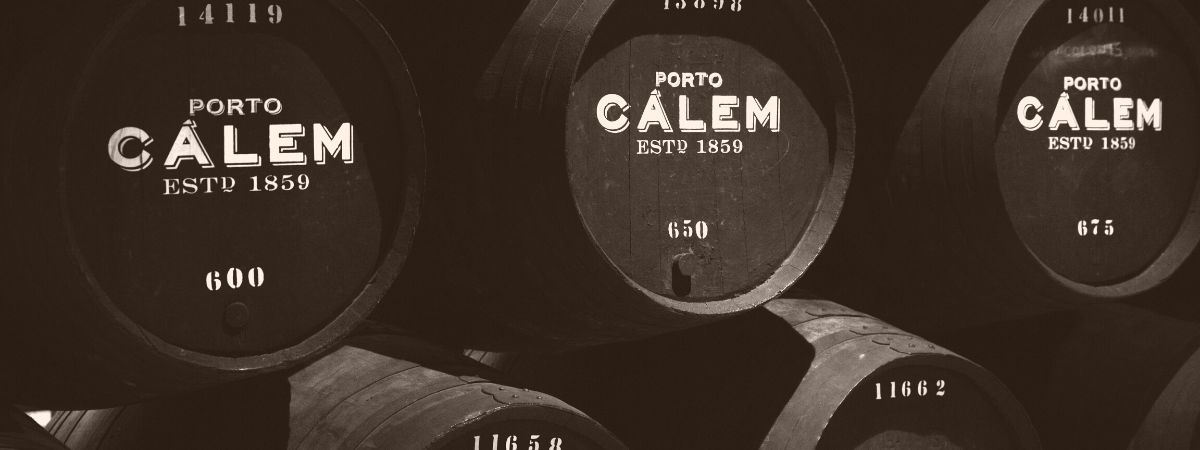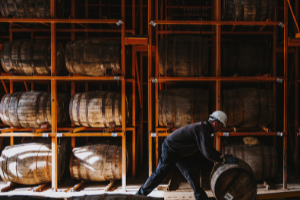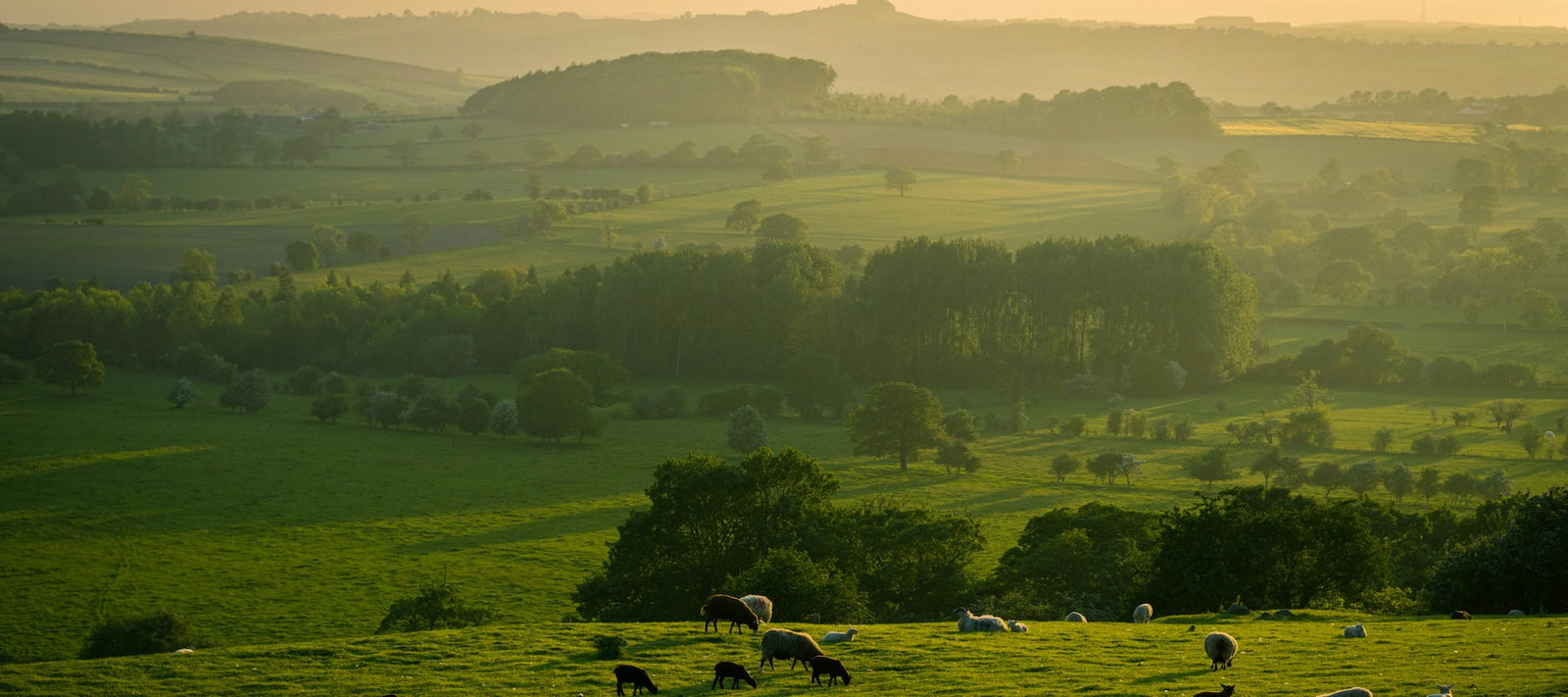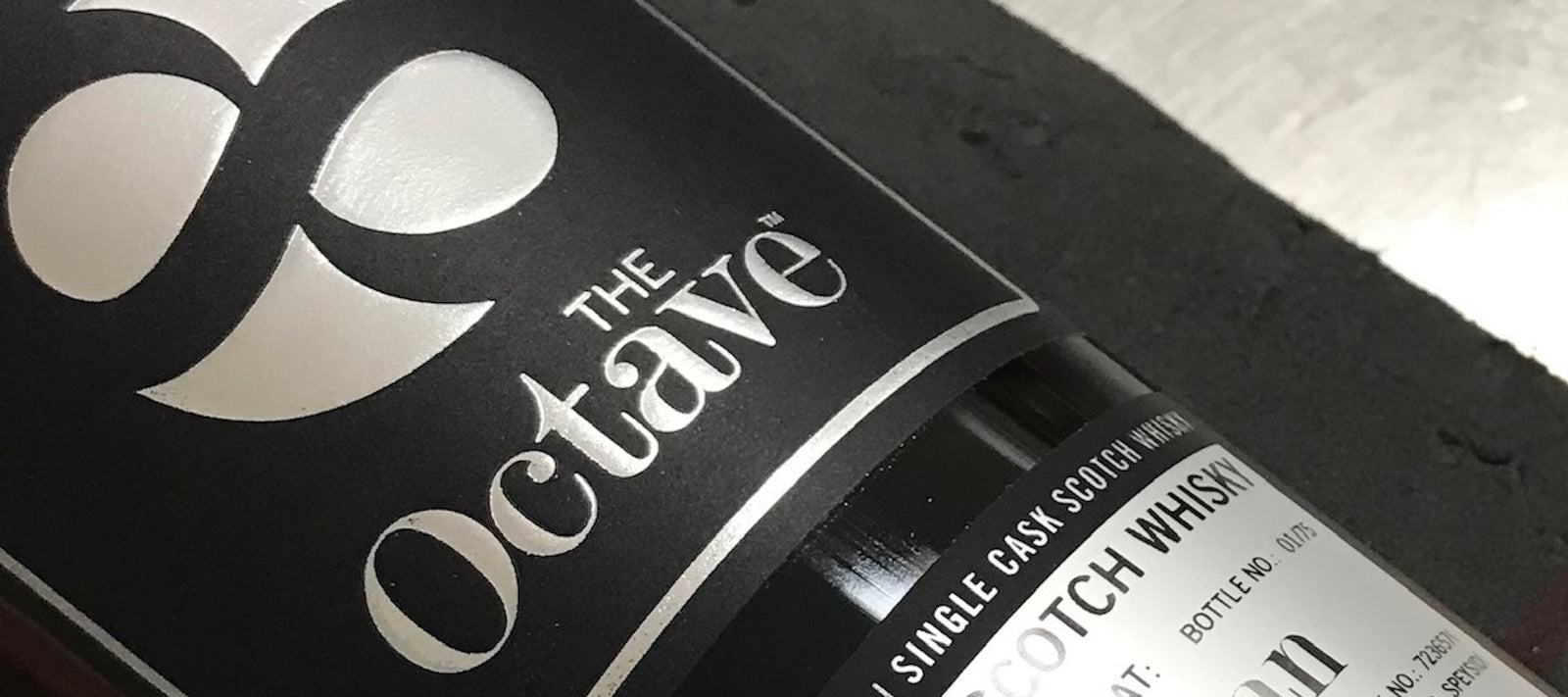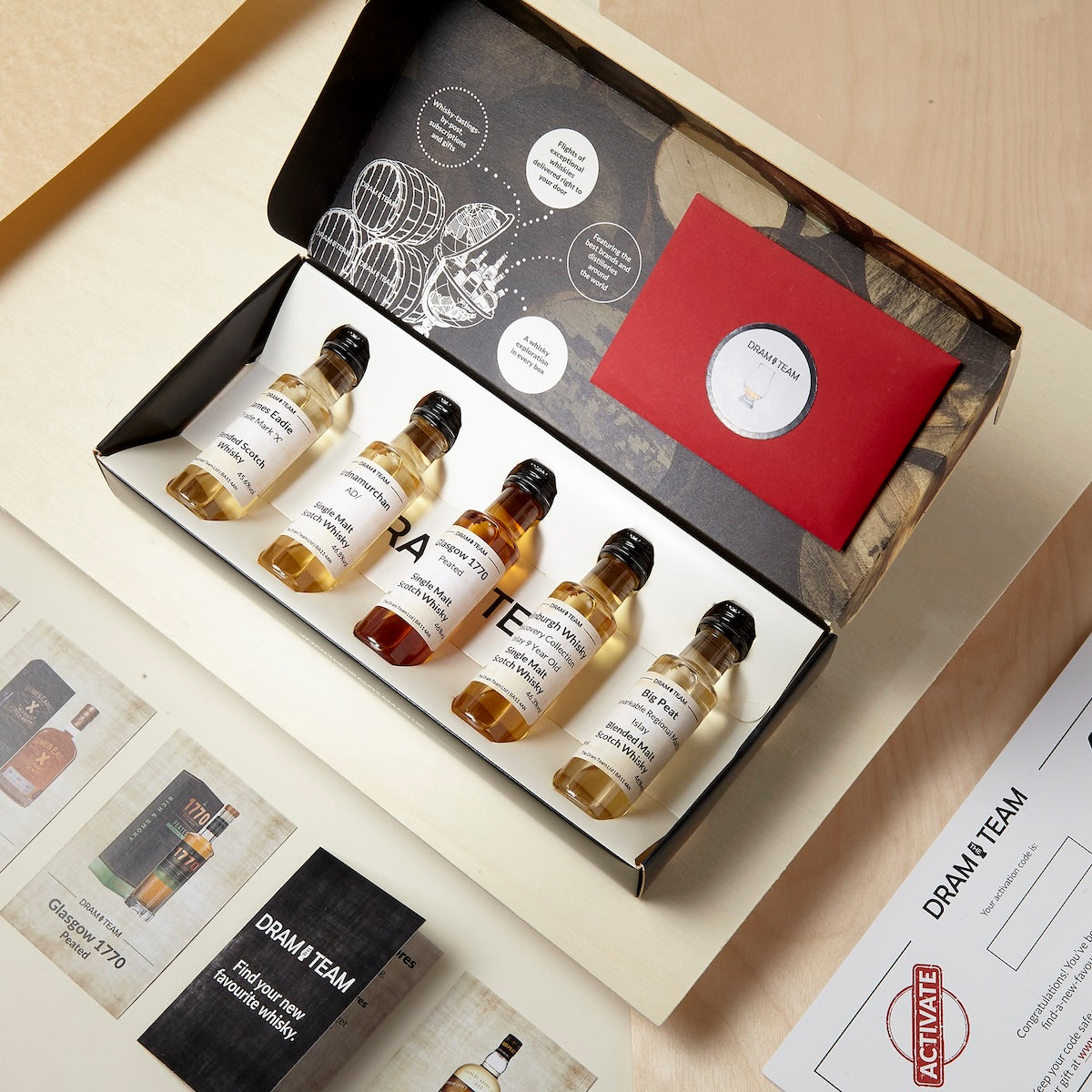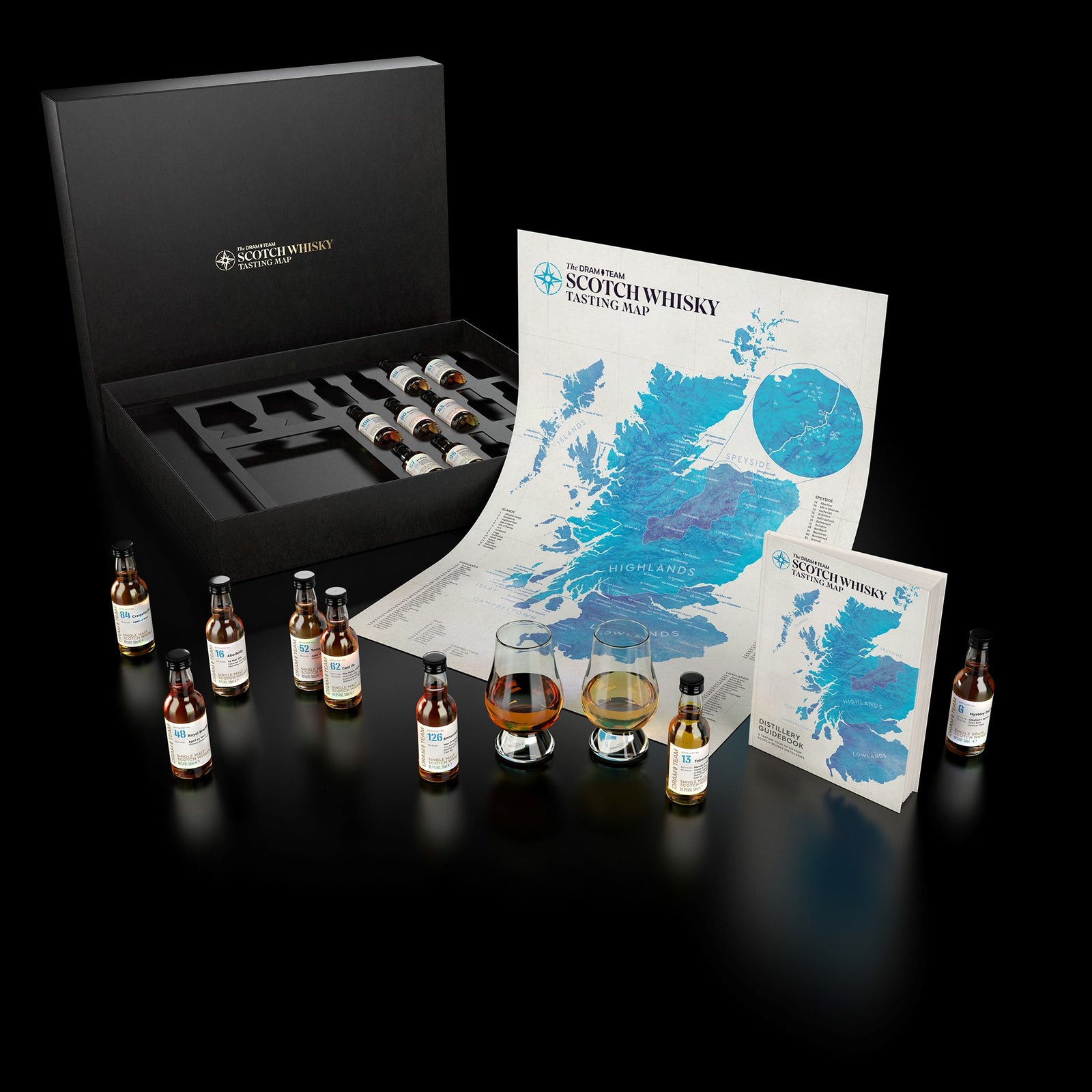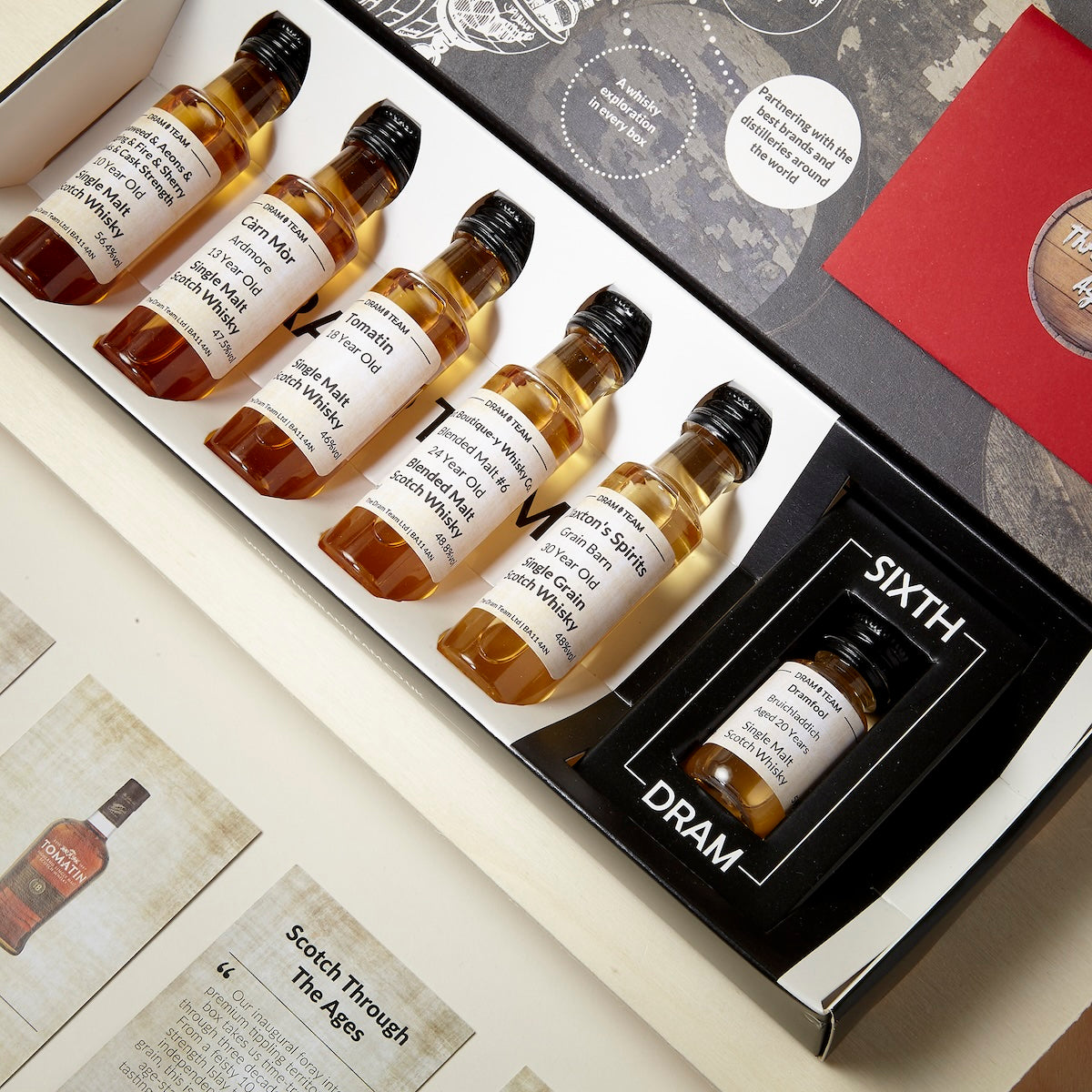Welcome back to our mini-series of how whisky is made, The Art of the Cask! Today’s post is all about unusual barrels - think red wine casks, port casks, even tea-seasoned casks… Now, we’ve nothing against the widely used refill or ex-bourbon barrel, or even the virgin oak - sometimes we just want a littleexcitementin our whisky. And the best way to get that is with something a little outside the norm.
In this article, we won’t be covering sherry casks, becausewe already did that.
What are some unusual casks?
Most whisky casks currently ageing in Scotland are ex-bourbon barrels. The reason for that is simple: bourbon, by law, has to be aged in virgin (unused) oak. That means once the bourbon has been disgorged, you can’t use it to make bourbon again. Off they ship to bonnie Scotland (or Ireland, or really, anywhere else that needs barrels) and get repurposed. Ex-bourbon casks (usually made from American oak) impart sweet, subtle flavours like vanilla and caramel and soft woody notes. The more times you reuse the barrel, it’s like a tea-bag - you get less and less flavour through each time.
That’s all well and good, but if you want to make your whisky stand out, you have to think outside the box a little. And what some whisky makers do is use a different type of cask, either as a finish after it’s aged in an ex-bourbon cask, or straight off the still, to achieve a unique flavour profile. Here’s a breakdown of some of those more unusual casks.
Red Wine Casks
Lots of styles of red wines are also aged in casks, to help round out the flavours. Because of the sheer variety of red wines, each type of red wine cask will impart something different on the whisky. For example, a fruity American Zinfandel wine barrel made of American oak will give a very different flavour to the whisky than a bold, dry Burgundy French oak cask. In the first, you might expect a lot more bright red fruit notes and rich vanillins, whereas the French cask would probably bring lots more tannins and dark berry and cedar notes. In any case, red wine casks will usually bring a deep reddish tinge to the whisky too, along with those rich, jammy flavours.
White Wine Casks
Not as many types of white wine are usually aged in casks, as most styles are designed for freshness rather than richness. And not many whiskies take well to the flavours left behind in a white wine cask, as they can be quite acidic. Chardonnay as a grape lends itself well to barrel ageing, as it takes well to the rich flavours of the cask, but white Burgundy casks are not often seen in the whisky world. When they are used, expect light fruit flavours like apple, stone fruit and sometimes tropical fruit notes.
 Glen Moray Chardonnay Cask, a rare whisky to be aged in white wine casks
Glen Moray Chardonnay Cask, a rare whisky to be aged in white wine casks
More typical is the sweet white wine cask, such as Sauternes or Tokaji, although these are also fairly rare thanks to the high price point of the casks, and the fact they can be very overpowering. However, when they are done right, they can be a luxurious, decadent treat!
Fortified Wine Casks
Fortified wine includes any wine that has had distilled spirit (like brandy) added to it to fortify it, such as port, vermouth, sherry, marsala, or madeira. However, as there is such a range of styles even with each subgroup, there is no easy way to describe what flavours this category of cask will bring. We’ll break it down a little bit.
Portis a style of fortified wine that can only be made in the Douro region of Portugal. It includes several sub categories. Ruby port is usually the cheapest, and is young, red and fruit-driven. Tawny port is made from red grapes that have undergone oxidation inside a wooden barrel to impart more nutty flavours. These two styles of port are the most common for whisky ageing, although most producers won’t let you know which - as most people probably wouldn’t think to ask!
Madeira comes from the Portuguese Madeira Islands. Madeira wines range from dry to sweet, and are usually deliberately oxidised through heat and ageing. Whisky aged in these barrels tend to take on lots of dark colour from the strong red wine-soaked staves, plus spiciness and fruitiness.
Marsala is a Sicillian fortified wine ranging from dry to sweet, and young to very well aged. It’s typically very rich, and a Marsala cask will provide similar effects to the wines above on a whisky.
 Dalmore King Alexander III Single Malt, contains whisky aged in a variety of fortified wine casks
Dalmore King Alexander III Single Malt, contains whisky aged in a variety of fortified wine casks
A great example of a whisky that expertly blends all of those types of casks, plus red wine casks and others, is the Dalmore King Alexander III. We featured this whisky as the 6th super special dram in our November Whisky and Wood tasting box - and it was a luxurious, velvety treat!
Other Spirit Casks
Rumis probably the most common spirit cask to age a whisky in. Prominent examples include Balvenie Caribbean Cask, Ardbeg Drum and Glenfiddich Fire & Cane. Another standout whisky from our November box was the Whisky Works Quartermaster, a release of Scotch whisky that was part-aged in caribbean rum casks. Rum casks can add decadent flavours of dried fruit, chocolate, vanilla and baking spices - delicious!
Cognacis another spirit whose casks are sometimes found in a whisky warehouse. Some american whiskeys have played around with finishes, and a fair few Scotch brands have too. Lambay, who featured in our World Whisky box earlier this year, have even made it a core part of their whisky-making process. Think tangy citrus, raisins and toasted opulence.
The SWA has recently allowed other alcoholic spirit barrels like tequila, so look out for some of those releases in the next few years.
Other Casks
Some producers are playing around with other types of wood than the standard American or European oak. Try for example the Whisky Works King of Trees, which was aged in the extremely-rare Scottish oak. There are also a number of distillers trying (where regulations allow it) other woods like chestnut or acacia. We talked a little about how the actual make-up of the cask affects the whisky in our very first post in the Art of the Cask series. If you want to know more about how the type of wood affects the whisky, have a read.
Try Some Unusual Cask Whisky
The best way to try more interesting whiskies more regularly is tojoin our tasting club! We curate bespoke whisky tastings every month and send them straight to your door.
Or, you can give our whisky tasting boxes as a gift to the whisky fan in your life.
And don’t forget to tag us on social media to show us what you’re drinking and what you’d like to see us feature next.

